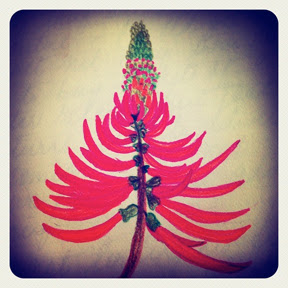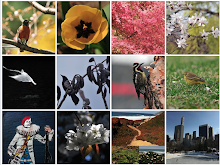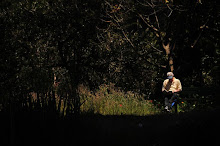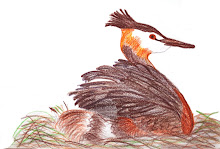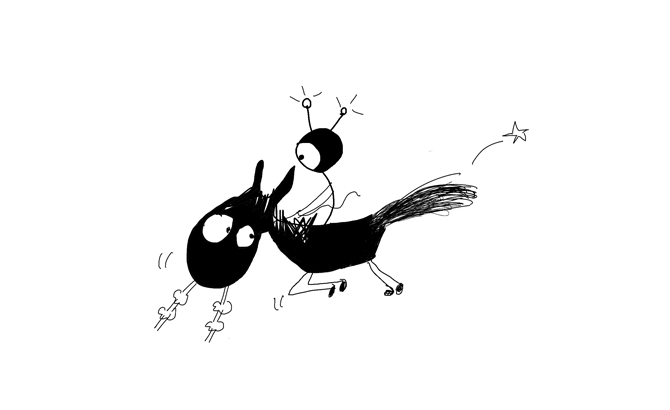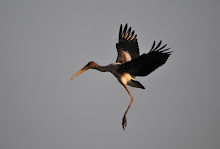Marginalia: the scribbles and doodles on the margins of books. First recorded use of the word is in 1819 in Blackwood’s Magazine.
Fermat’s Last Theorem is possibly the most famous marginalia. Around 1637 Fermat wrote, what is
considered his Last Theorem, in the margin of his copy of the Arithmetica next
to Diophantus' sum-of-squares problem ending with the words, “I have discovered a truly
marvelous proof of this, which this margin is too narrow to contain.” He never
wrote about the proof ever again. Till 1995, when it was finally proven, Fermat's Last Theorem was considered the most difficult problem in Mathematics.
Samuel T. Coleridge’s
marginalia, the scribbles he made in the margins of other people's books, is published in five volumes.
A secondhand book on science
bought from Broadway Market Bookstore travels the seven seas just because of
the dedication scribbled on the opening page by a 9 year old in 1936.
One-dimensional flowers and butterflies pop out from dairies that haven’t been
opened in ages. Characters with their eyes about to burst out, the same toothy
donkey, extra-terrestrial beings, anatomically implausible birds, little girls
with triangular bodies, the occasional dog, more flowers than one can count,
rudderless boats, esoteric line drawings of nothing– are scattered all around the house, living within the
pages of various books.
But our marginalia is
cloistered mostly in notebooks and diaries. Any conversation we are having with the
text is not recorded for posterity in the margins of the book being read. We somehow
never got to the stage of leaving a mark on books like a dog does on a hydrant.* That is something that is encountered only in books
found in second-hand bookstores or the one’s borrowed from the library. In case
of the latter various found objects––airline boarding passes, laundry and ATM
receipts, unidentifiable food stains, email address noted on torn edges of envelops––add to the mystifying
dialogue.
All this, though, pales in the
face of the scribbles of overworked monks and copyists. Michael Camille even wrote a book about it. The 'amusing doodles' found in the margins of the illuminated texts shine a light on the life of the 'others'– the underbelly of society. The marginalia found in medieval manuscripts, overwhelming feature the grotesque and the profane, and seem to subvert the message of the
texts they appear on the margin's of. However, they often not only uphold, but
also reinforce the conventional, rigid hierarchies. Or as Camille writes, “the
edges of discourse...always return us to the rules of the center.” (Suffice to say a longer explanation would require going into among other things the nature of and the relationship between the sacred and the profane through the ages, which is way beyond the intention and scope of this post.)
Then there are the modern day
scholars scribbling in the margins of much loved/hated texts in college libraries.
Some content to express their feelings through the amount of energy expended in underlining the fateful lines. Others making “in-jokes” that in just a couple of years will seem redundant if not
completely absurd. Though some jokes, mostly involving the grotesque and the
profane, seem to live long and prosper.
*Tara Bray Smith
Afterword: Of course not everyone is enthused by marginalia. For me personally, food stains on books are a cause of great agony. For libraries marginalia, of any and every sort, is an act of vandalism.
For those enthralled by marginalia, more can be found in a book about readers writing in books. H J Jackson, an editor of Coleridge’s poems (which could explain her fascination with the subject), scours though books and the annotations made by readers, famous and obscure, over the last three centuries in an attempt to cover the history, psychology and the ‘dark side’ of marginalia and brings into focus the war between the ‘annotators’ and the ‘bibliophiles’.
For those enthralled by marginalia, more can be found in a book about readers writing in books. H J Jackson, an editor of Coleridge’s poems (which could explain her fascination with the subject), scours though books and the annotations made by readers, famous and obscure, over the last three centuries in an attempt to cover the history, psychology and the ‘dark side’ of marginalia and brings into focus the war between the ‘annotators’ and the ‘bibliophiles’.
Or else, here is Billy Collins reading his poem titled Marginalia, which incidentally is the only instance in which I find food stains on books beautiful.


